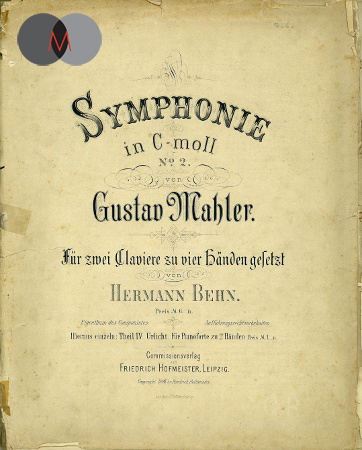The mystery of music
Was du geschlagen, Zu Gott wird es dich tragen!
I was moved a few months ago by the story of Erik Varden's conversion in his book "La explosión de la soledad" [The Explosion of Solitude] (Monte Carmelo, Fonte, Burgos, 2021).
What brought him closer to God was the burst of beauty and truth he perceived in Mahler's Symphony No. 2. Varden explains: "Hearing these words "Have faith: You were not born in vain / You have not suffered in vain", something burst forth. The pounding insistence, 'not in vain, not in vain,' was irresistible. It wasn't just that I wanted to believe it. I knew it was true. It sounds trite, but at that moment, my consciousness shifted. With a certainty born neither of startled emotion nor cold analysis, I knew I carried something inside me that reached beyond my limits. I was aware of not being alone. There was no special enthusiasm or ecstatic inner movement. There were no tears. But I could no more doubt the truth of what I had found than I could doubt my own existence" (p. 14).
A few weeks ago I met the entrepreneur Luis Conde who took on the exciting adventure of -without having studied music, but with a lot of preparation- conducting the second and fourth movements of Mahler's Second Symphony with the Orquestra Simfònica del Vallès at the Palau de la Música Catalana. I have just read the book in which he narrates his experience and I loved it ("La fórmula del talento y Mahler", Plataforma, Barcelona, 2015).
But what I want to tell you is that these days I have discovered the final movement of the Symphony No. 2, which Gustav Mahler composed between 1888 and 1894. Without having hardly any knowledge of music, it has captivated me. It has impressed me so deeply despite my deafness that I have not resisted the temptation to write this post. Multiple versions can be found on YouTube. I especially liked the one conducted by Gustavo Dudamel.
Music is -it can be- one of the activities that makes us more human, because it makes us more spiritual and can lead us to God. Mahler's Second Symphony culminates with the verse (in German) with all the instruments and the members of the choir in full voice: "What has beaten [the heart], will lead you to God". And it leads you also, at least, to me.
SOURCE: This text was originally published in Spanish on 02/05/2024, and translated with a little help of the free version of DeepL™ translator, & GoogleTranslate™ <https://www.facebook.com/jnubiola/posts/pfbid033CoCaJjMSWytA71C3mpLnLpidgRgjxEJVSH9HwqvrEKZA1RzwoqiuGdX3UK63F4Dl>




Comments
Post a Comment